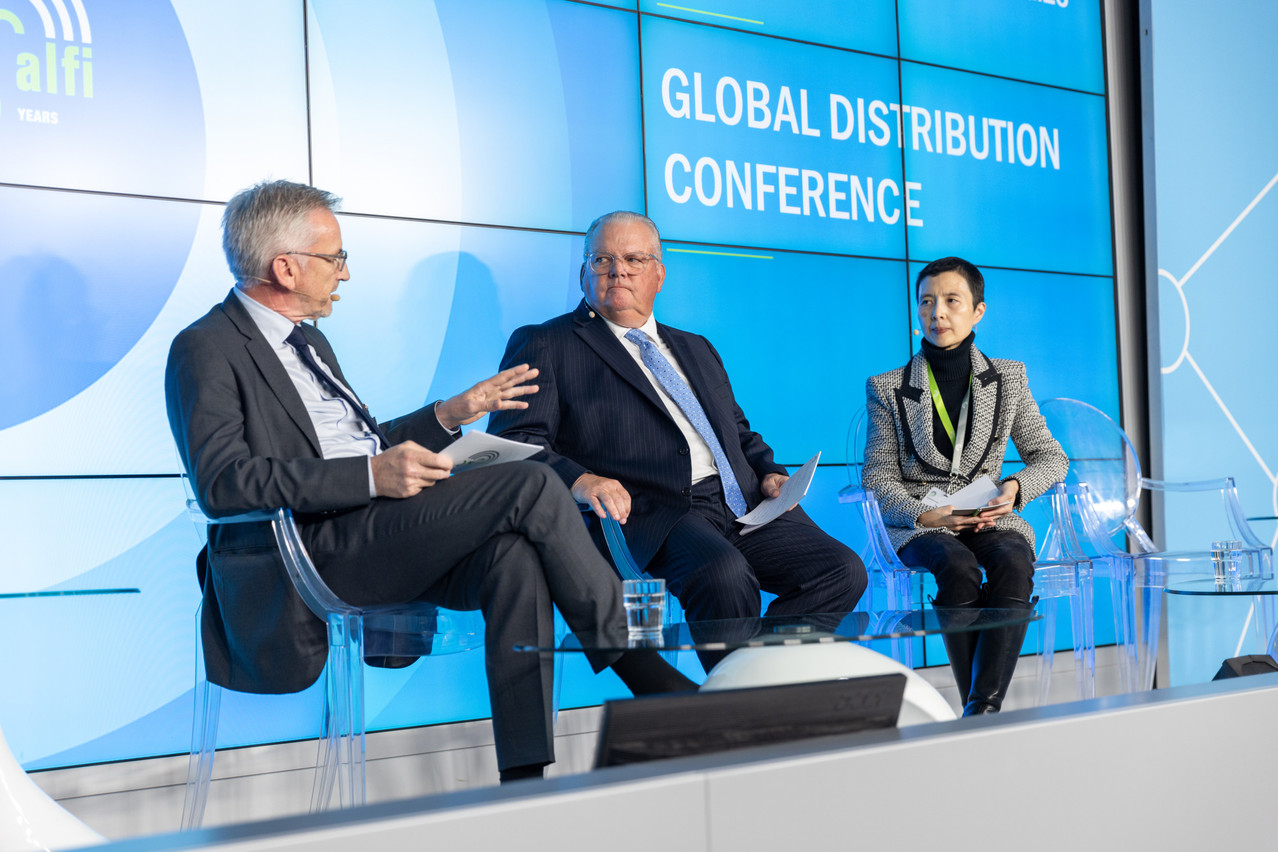“The market sentiment has to a certain extent improved [from 2022 to 2023], but we are very much affected by what’s happening in the Chinese economy. So, I think in terms of the inflows into the fund sector, we still face a lot of challenges,” said Sally Wong, CEO at the Hong Kong Investment Funds Association (HKIFA). She was speaking during a panel entitled “A closer look at how Asia and the US are addressing the global challenges” at the Association of the Luxembourg Fund Industry conference on 20 September.
Following a drop in market turnover (larger than other markets), Wong noted that the Hong Kong government has formed a task force (official and non-official members) to boost stock market liquidity. The intention is to make the HK market “more vibrant” despite the pressure coming from bank deposits now offering attractive interest rates.
Rates and political uncertainty
The improving economic environment and bouncing inflation have challenged the Fed on which way to go. “As a result, I think people are kind of sitting on their hands a little bit from an investment standpoint,” said Jim Fitzpatrick, president & CEO at Nicsa, a not-for-profit trade association for the global asset and wealth management industry.
The second major topic is the upcoming US presidential election in 2024. “[It] obviously has major implications in the long term, not only for our industry, but for the global industry at large,” commented Fitzpatrick.
US ESG: late but accelerating
“I think we’re probably still two years behind Europe in terms of ESG topics, including the regulatory environment,” assessed Fitzpatrick, but he considers the topic to be “at the top of the agenda [….] from an industry specific perspective.”
It is also high on the agenda of the US Securities and Exchange Commission (SEC), which adopted on the day of the conference amendments to the current rules regarding registered fund names, as well as certain forms and disclosure requirements.
Politicising of ESG in the US
“Over 20 attorneys general from predominantly Republican states have filed letters with fund managers requesting them to defend their policies around ESG, their voting rights and proxies, because their primary fiduciary duty is to return to the shareholders,” said Fitzpatrick. Yet, he noted that investment firms are “very interested in ESG and ESG product line-ups” and guidance from regulators on a code of conduct.
Outcome of a retail investor survey on ESG: If I’m going to do something good, I will do it separately from investment.
It was perceived during the discussion that many ESG concepts are not well defined in the US and that the regulator has applied an tough enforcement approach. “I think there have been five firms that have been fined significantly for misrepresentation and misleading marketing of ESG products to clients,” said Fitzpatrick. He believes that this is the result of the absence of guidance on a code of conduct.
Asia ESG: investors moving at different speed
“If I’m going to do something good, I will do it separately from investment,” Wong said, regarding the outcome of a retail investor survey on ESG. On the other hand, she explained that the Task Force on Climate-related Financial Disclosures, or TCFD, framework was transposed in the last year into the fund manager Code of Conduct. It set the expectations as to how fund managers should integrate the framework into the risk management process, investment management process governance and disclosure.
Wong also explained that they are in discussion with the HK Securities and Futures Commission to assess the best options to regulate ESG data and service providers. She noted that some jurisdictions have applied a mandatory approach while some others just rely on the “existing outsourcing rules.” The HKIFA plans to propose an interoperable and effective model to the regulator.
Restriction on data transfer to Luxembourg
Framing her comments as soft complaints, Wong reported that many of their members are struggling to comply with Luxembourg requirements on AML and KYC as “depot banks have been requiring a lot of information, for example, on reporting suspicious transactions and the KYC of the underlying investors.”
Retirement planning: a growth avenue for asset and wealth managers
“A number of firms have completed acquisitions in order to get access to the retirement plan market,” said Fitzpatrick. He added: “there's something in the neighbourhood of $13trn in retirement plans in the US, of which 95% to 97% of the participants have historically not been targeted by asset management and wealth management firms as potential clients.”
Once the retirement plan accounts are inhouse and people get to a high-net-worth status, “you already have a trusted relationship with them, and they’re more likely to do business with you,” thinks Fitzpatrick. He believes that a key factor for the acquisition of Franklin Templeton by Putman was their access to retirement plans.
Digital assets and cryptocurrencies: diverging views across Asia and the US
“[It] is still early days because there’s uncertainty about valuation liquidity and there are so many stories,” said Wong. Yet, she noted that high-net-worth individuals have accumulated “some exposure.” She admitted, though, that the subject is not high on their agenda.
HK is rather more focusing on other alternative products and how to bring them to retail investors. Wong explained that there are discussions with the regulators to open up the defined contribution schemes for investments into infrastructure and private equity.
“I think it is very high on the minds of several firms […] [as] they are 10+ firms that have filed for some type of bitcoin or digital funds,” said Fitzpatrick. Yet the SEC has adopted a very restrictive approach in their review. “There’s definitely an appetite from investors for some relatively small allocation to digital assets and tokenisation.”
This article was published for the Delano Finance newsletter, the weekly source for financial news in Luxembourg. .

